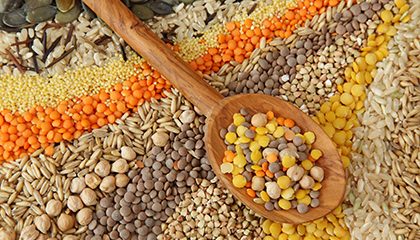Nutrition and Brain Development in Children

In children, a well-balanced diet enables genes to exert their potential effects on brain development in young children. This leads to strong cognitive, motor, and behavioral development. Dietician Fahmida Jafri explains more…
Brain Growth
All life processes are subject to the influence of biological and nurturing factors, tells Fahmida, and brain growth and development are no exception. She explains, “During fetal and early postnatal life, genetic determinants contribute to the establishment and maintenance of the central nervous system. However, 90 percent of the child’s brain development happens before the age of five.”
Important Minerals
Genes predict our brain development, but Fahmida tells that it’s the environment that sculpts it. “The brain is a complex organ of the human body whose specialized functions are always in need of certain important nutrients such as folic acid, iron, zinc, fats, and iodine,” she explains. “Vitamin A unlocks the most powerful functions of the human brain, which is learning.”
Fatty acids like DHA, she points out, are highly needed for fetal brain development during the third trimester of gestation as two-thirds of the brain is composed of fats.
Also, the inclusion of ALA (Alpha Linoleic Acid), rich dietary sources in a child’s diet, may help in improving spatial awareness and motor skills. Another important mineral needed for the developing brain is iron, notes Fahmida. “It supports learning and memory in children,” she says, and in fact, an iron deficiency in infants may lead to sleep disorders, wariness, and paucity of movement. It can lead to low attention and concentration in children from two to seven years of age. Also, inadequate iron in diet causes low digit span, visual memory, and low mathematical performance in the concrete stage of children’s life.
Iodine is another, which Fahmida explains is essential for the normal functioning of thyroid gland, which in turn regulates the metabolism and IQ. Iodine deficiency disorders are the most common cause of preventable mental retardation and learning disabilities in children.
Another neglected emerging nutrient for good memory is vitamin K. It protects the brain from oxidative damage and is involved in metabolism of brain cell membrane. Therefore, she suggests early intervention of ‘neuro friendly’ nutrients in the diet can help in promoting cognitive, socio-emotional development as well as scholastic performances in children. She elaborates, “In a nutshell, some of the nutrient dense foods good for brain development are organic eggs, oily fish, carrots, dark green leafy vegetables, broccoli, avocados, and mushrooms.”
(Credit: Dietician Fahmida Jafri, Thumbay Hospital, Ajman)











Dear healthmagazine.ae administrator, Thanks for the well-organized post!
Hello healthmagazine.ae webmaster, Your posts are always well received by the community.
Hello healthmagazine.ae webmaster, Your posts are always well organized and easy to understand.
To the healthmagazine.ae webmaster, You always provide great examples and real-world applications, thank you for your valuable contributions.
Hello healthmagazine.ae admin, Your posts are always well-supported by facts and figures.
Dear healthmagazine.ae owner, Keep up the good work!
To the healthmagazine.ae webmaster, Well done!
To the healthmagazine.ae administrator, You always provide useful links and resources.
Hi healthmagazine.ae webmaster, Thanks for the post!
Hi healthmagazine.ae webmaster, Your posts are always well-received and appreciated.
Losing weight is now within reach, thanks to this amazing product. From 85kg to a lean 55kg, the results speak for themselves. Take control of your weight and click here to experience the benefits firsthand!
Spring has finally come. After last cold winter, I met warm spring. The daily temperature difference is still large, so you should pay attention to health care. Let’s not catch a cold안전놀이터
Fahmida’s advice on incorporating ‘neuro-friendly’ nutrients into children’s diets is invaluable for promoting overall well-being and academic performance. It’s clear that a balanced diet rich in essential nutrients is key to unlocking the full potential of children’s brain development. #iq test free